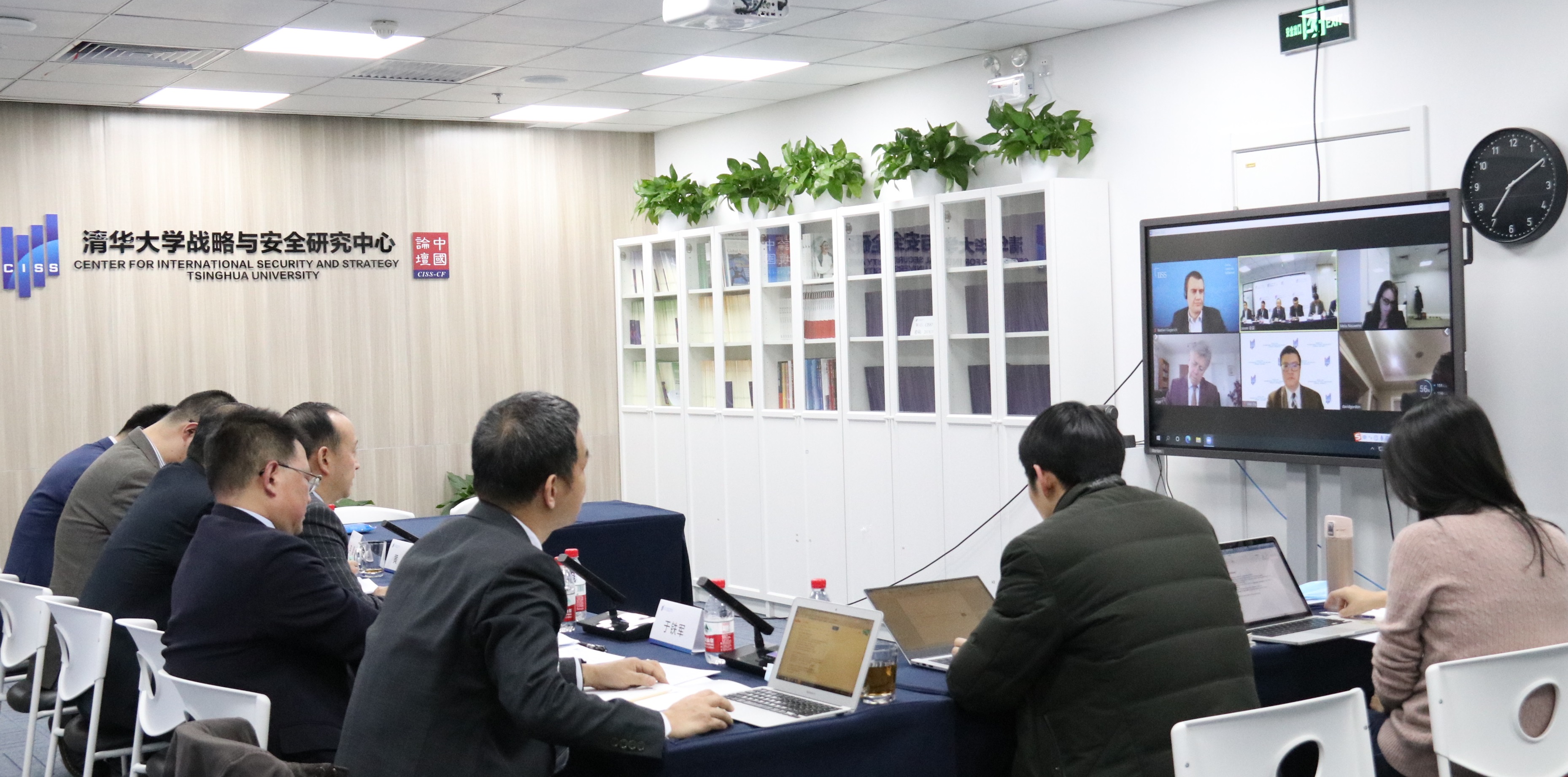On December 14, Beijing Time, experts from the Center for International Security and Strategy (CISS), Tsinghua University attended a webinar titled “After the U.S. Election: International Relations and China’s Foreign Policy” jointly held by CISS and the International Institute for Strategic Studies (IISS).

The Chinese speakers at the event were ZHOU Bo, CISS Senior Fellow; HUANG Jing, Contributing Expert at China Forum; CISS Research Fellows DA Wei, LI Chen and ZHANG Yitian; YU Tiejun, Vice President of the Institute of International and Strategic Studies, Peking University; and YANG Lei, Deputy Dean of the Institute of Energy, Peking University. The virtual gathering also brought together an IISS panel including Bastian Giegerich, Director of Defense and Military Analysis; Nigel Inkster, Senior Advisor for Cyber Security and China; David Gordon, Senior Advisor for Geo-Economics and Strategy; and Meia Nouwens, Research Fellow for Chinese Defense Policy and Military Modernization.

Speakers discussed about post-election issues including U.S.-EU relations, the outlook for the transatlantic alliance, European military and security defense, and what will Biden keep in his China policy and how he plans to reshape it, as well as possible competition and cooperation between the U.S. and China. The insights of the participants inspired lively discussions on these matters. It was agreed that China, the U.S. and the EU should strengthen multilateral cooperation on non-proliferation of nuclear weapons, climate change and crisis management.
As noted by the Chinese panel, fresh opportunities have opened up for EU-China relations. Europe could potentially act as a bridge between the U.S. and China to restore balance in their bilateral ties. Meanwhile, compared to the Trump administration, the Biden administration was widely regarded by IISS experts as a more proactive advocate for U.S.-EU cooperation, which will contribute to the ties across the Atlantic. However, they still face challenges in technology cooperation. Again, Europe is unlikely to challenge China exactly as the U.S. would like.
